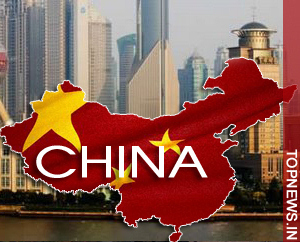China lures economic bulls for Ox year
 Beijing - Tens of millions of migrant workers are inundating bus and train stations this month for the usual annual exodus from China's cities to their home villages for Spring Festival, or lunar new year.
Beijing - Tens of millions of migrant workers are inundating bus and train stations this month for the usual annual exodus from China's cities to their home villages for Spring Festival, or lunar new year.
But this new year will be different for many migrants: they are going home for good.
At least 10 million migrant workers have already lost their jobs in eastern and southern cities which rely on export-oriented manufacturing industries, according to government economists.
Premier Wen Jiabao tried to put a positive spin on China's prospects for the Year of the Ox during a traditional pre-Spring Festival tour of the eastern province of Jiangsu, a key area for exports.
"Our aim is to be the first (nation) to recover from the financial crisis," state media quoted Wen as saying in Jiangsu.
"We must have faith and determination," he said.
Wen pointed to "better than expected" economic data in December and said government measures, which include a 4-trillion-yuan (586-billion-dollar) stimulus package to fund infrastructure and other programmes over the next two years, have "already taken effect."
Other officials insist that China can still achieve growth of 8 per cent in its gross domestic product (GDP) this year, but many analysts and investors are far less bullish about the economy, especially for the next few months.
"We all know that the first half will be hard for China's economy," Beijing-based economist Shen Minggao told Deutsche Presse-Agentur dpa.
"Foreign demand has been slow. Internal demand, such as real estate, also has been slow," Shen said.
"The 4-trillion-yuan investment may not show any fruit in the first or second quarters," he said.
Key to the success of the ruling Communist Party's efforts to bolster the economy against global woes will be the promotion of domestic demand through looser bank lending, tax breaks, and infrastructure and employment programmes for poor rural areas.
It will focus this year on policies such as opening rural land markets and measures to prop up urban property prices, perhaps appropriate since the astrological ox is associated with agriculture, spring and the renewal of the land.
Yet property analyst Zhou Fan sees bleak prospects for both real-estate prices and Chinese stocks.
"The real-estate market in 2009 will be clouded by the unchanged topic of falling prices," Zhou said.
"The house prices in urban areas will obviously fall, no matter what policies the country uses, and this trend cannot be resisted," he said.
In last year's bearish stock markets, about 60 per cent of 25,100 individual investors said they lost more than 70 per cent of the value of their stocks, according to an online survey by Shanghai Securities News and the website www. stockstar. com.
The Shanghai and Shenzhen stock indices lost almost 70 per cent of their value last year, wiping out more than 2 trillion yuan (290 billion dollars).
The government reduced stock-related taxes and plans to buy new shares worth billions of yuan in major airlines.
It hopes to transform the nation's increasingly panda-like investors and consumers into bellowing bulls.
Whatever the success of China's efforts to stimulate the domestic economy, the influence of the global turmoil is likely be felt for some time yet.
"The Year of the Ox ... is unlikely to be a year of quick fixing and recovery," commentator You Nuo said recently in the official China Daily newspaper.
"Instead, it is likely to mark only the beginning of a protracted war against a global recession," You said.
The World Bank lowered its 2009 economic growth forecast for China from 9.2 per cent to 7.5 per cent in late November, while the Royal Bank of Scotland recently forecast growth of only 5 per cent.
Some government economists warn that such low growth would lead to many more job losses among China's 1.3 billion people and to unrest among the hundreds of millions who remain cut off from the urban prosperity of the east and south.
Shen believes China can hit its 8-per-cent growth target but is worried about the long-term effects of heavy government investment, forecasting that investment could account for nearly 50 per cent of the GDP next year.
"Generally speaking, China depends largely on external demand," Shen said.
"If the global economy rumbles, it is hard for China to preserve its own direction," he said. (dpa)